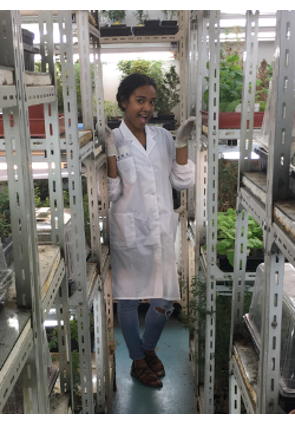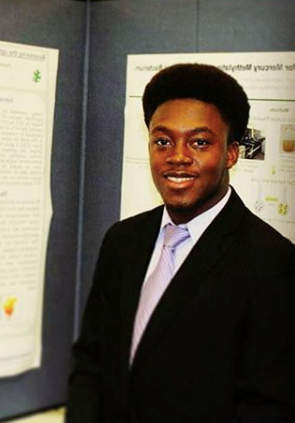
Research in China
In the summers of 2017 and 2018, two cohorts of undergraduate NELSAMP scholars accomplished an overseas research experience at Shanghai Jiao Tong University in China. Even whilst contributing full-time hours in a variety of university labs, these students engaged in cultural excursions, foreign language workshops, in addition to connecting with graduate students within the Shanghai community. All the while, the NELSAMP scholars collaborated as a group of undergraduate researchers from the United Kingdom, France, Canada, as well as the United States.

Amal Omar, Tufts University
Summer 2017, Amal Omar, E20, conducted research abroad at Shanghai Jiao Tong University, working in one of the labs within the School of Agriculture and Biology. Her primary focus was to develop techniques in metabolic engineering in order to increase the chemical content of Artemisinin in the plant Artemisia annua. This plant had been used in Chinese traditional medicine for many years to treat malaria, and Artemisinin has been proven to be the curing agent. One of the techniques used to boost the content of Artemisinin was to increase the density of the secretory glands, called trichomes, that are contained on the epidermal layer of the leaf. Amal did this by manipulating a transcription factor, a protein that controlled the rate of RNA transcription within the cell. The transcription factors that both overexpress the genes that promote trichome formation, and that underexpress the genes that inhibit trichome formation, were closely researched and identified in the lab.
Pierre Fils, University of Connecticut
Over the summer Pierre, a senior civil engineering major conducted research at Oak Ridge National Laboratory, home to the largest supercomputer (Titan) in the US. While in Oak Ridge, Tennessee, he worked in the Climate Change Science Institute under Dr. Jitendra Kumar and alongside researchers ranging from undergraduate through post-Doctoral. “This summer my goal was to understand and quantify the climate impacts on building energy efficiency and consumption under current and predicted future climate scenarios. I had the chance to work on mid-scale high performance computing clusters in order to analyze climate data in an attempt to redesign the ASHRAE Climate Zones. This was in an effort to decrease the amount of energy consumed by residential and commercial buildings.”


Jordie Kamuene, University of Massachusetts Amherst
Meet Jordie Kamuene, a dual degree candidate in both Biochemistry and Microbiology at the University of Massachusetts Amherst. She is interested in infectious diseases resistance to antimicrobials, as well as the surveillance and development of prophylactic public health interventions in vulnerable populations. "As an LSAMP scholar, I have been afforded the opportunity to conduct funded research over the summer, as well as travel to LSAMP conferences to present my research while also participating in building network connections... In addition, I have been approved for the LSAMP Bridge to the Doctorate training grant which I will be using to pursue doctoral training at Northeastern University in Pharmaceuticals Science.